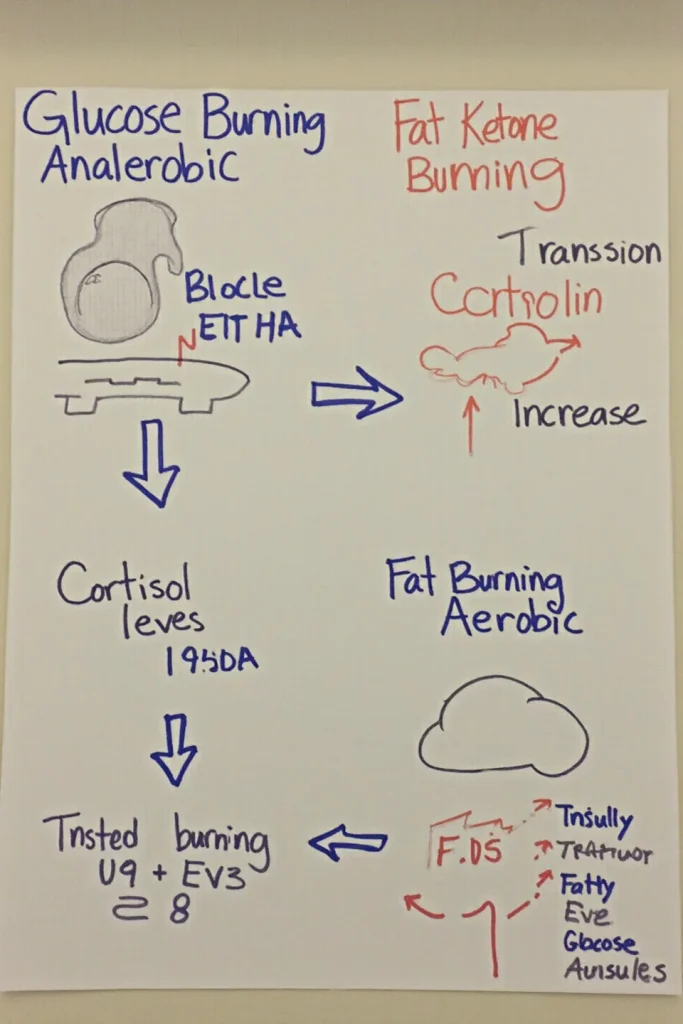In recent years, low-carb diets have received lots of attention—not only in terms of losing weight, but improving overall health. This full guide will simplify the science of low-carb diets and benefits of them, with a research-based and practical approach to enhance your daily life.1
Introduction
The science and benefits of low-carb diets have made them one of the most popular and researched nutritional strategies today. With benefits ranging from rapid weight loss, better blood glucose control, and improved and sustained energy, it has become a staple in health based on solid scientific evidence.
In this guide, we will breakdown low-carb diets, how they work, their benefits, and any other data that will assist you making an informed decision about this approach to losing weight.
What is a Low-Carb Diets ?
A low-carb diet is an eating pattern that restricts carbs (which is found in foods such as bread, pasta, rice, and sugar) and emphasizes protein, healthy fat and non-starchy vegetables.2 You can consume anywhere from 20 to 130 grams of carbs daily–depending on the plan. The purpose of following a low-carb diet is to decrease your reliance on sugar for energy and retrain your body to use fat for fuel.

How Low-Carb Diets Work: The Science Explained
Consuming fewer carbs will decrease your blood sugar and insulin levels. This will cause your body to:3
- Burn stored fat for energy
- Enter a state called ketosis (especially in ketogenic diets)
- Produce ketones, which the brain and body use as an alternative fuel
Low-carb diets impact hormones such as insulin, ghrelin, and leptin, which influence hunger, fat storage, and your metabolism.

Tips for Starting a Low-Carb Diets
1. Start by eliminating sugar and refined carbohydrates – the first thing you want to do is eliminate sugar-sweetened beverages, sugary foods, white bread, and other processed snacks, as these are the biggest contributors of empty carbohydrates.
Incorporate whole foods instead, including vegetables, lean sources of protein, and healthy fat sources.
2. Whole, Nutrient-Dense Foods – when considering what to include in your meals, consider foods that are naturally low in carbohydrates and nutrient-dense. Below are examples:
Leafy greens (spinach, kale, arugula)
Cruciferous vegetables (broccoli, cauliflower)
Healthy fats (avocados, olive oil, nuts)
Protein sources (eggs, fish, poultry, tofu)
3. Simple Food Swaps – When it comes to your staples, swap high-carb staples for low-carb staples:
Cauliflower rice instead of white rice Zucchini noodles or shirataki noodles instead of pasta Lettuce wraps instead of sandwich bread or tortillas
4. Stay hydrated and watch your electrolytes – Week one is typically associated with water and electrolyte loss, which can induce fatigue, headache, or “keto flu“.
Drink plenty of water the first week, and even add a pin of salt or eat potassium-, magnesium-, or sodium-rich foods, to be more mindful of electrolytes.

The Benefits of Low-Carb Diets
Let’s examine the leading scientific-based benefits of low-carb diets.
1) Weight Loss Low-carb diets reduce appetite, promote fat burning, and numerous studies have found that low-carb dieters lose more weight than low-fat dieters over several months (especially in the first 6–12 months).
2) Better Blood Sugar and Insulin Response Low-carb diets can manage blood sugar levels, making them important for anyone with type 2 diabetes or insulin-resistance.
3) Better Heart Health, Lowering the amount of carbs consumed along with increasing the amount of healthy fat consumed will improve HDL (good cholesterol), drop triglycerides, and lower blood pressure.
4) Fewer Cravings and Better Appetite Control, limiting sugar and refined carbs will lead to natural reductions in cravings and help keep blood sugar controlled, leading to fewer energy crashes and mood swings.
5) Mental Clarity and Focus, after adequately adapting to fat as a fuel source, many report better mental performance and sustained energy levels throughout the day.
Types of Low-Carb Diets
There isn’t just one way to go low-carb. Here are some popular variations:
- Ketogenic Diet: Extremely low in carbs, high in fat.
- Atkins Diet: Starts low-carb, then gradually reintroduces carbs.
- Paleo Diet: Focuses on whole foods and naturally low in processed carbs.
Moderate Low-Carb Diets: Less strict, often used for maintenance.
Common Myths About Low-Carb Diets
Although there is an increasing body of evidence supporting low-carb diets, there are also many myths still surrounding eating this way. Let’s dispel some of the most prevalent myths using the evidence we have based in science.
Myth 1: Low-Carb Diets Are Dangerous to Heart Health
Truth: Many people are concerned about eating more fat—especially saturated fat—in particular perhaps raising cholesterol and increasing your risk of heart disease.
However, studies show that low-carb diets often improve important factors that determine heart health, such as higher HDL (good cholesterol), lower triglycerides, and lower blood pressure. Furthermore, when done correctly, low-carb diets very often actually lower inflammation and improve overall cardiovascular health.
Myth 2: You Need Carbs for Energy
Truth: While it is certainly true that carbs can provide a quick source of energy, your body can adaptively utilize fat and ketones as the main fuel source—in particular when on low-carb or ketogenic diets.
This metabolic shift often provides for greater energy stability, fewer lows, and even better mental clarity.
Conclusion: Embracing the Science and Benefits of Low-Carb Diets
The increasing number of studies looking into low-carb diets also tells us one thing for sure: decreasing your carbohydrate consumption can lead to significant changes in your weight, blood sugar control, heart health, and general well-being. Once you understand the science of low-carb diets and their benefits, you can make educated decisions about your nutrition and health.
A low-carb diet may not fit all people; however, many individuals find it to be enjoyable, sustainable, and might help them reach their health goals when coupled with their specific needs and desires.
Whether your goal is weight loss, chronic health condition management, or improved energy levels—having structures surrounding a low-carb diet may be the answer. As with any diet change, pay attention to your body’s signals and work with a healthcare provider as needed. Start simple, stay consistent, and be patient for your body to adapt.
If you are thinking of trying low-carb ways of eating, check out our Beginner’s Guide to Low-Carb Eating for practical tips, meal ideas, and common mistakes.
Let us know if you have any questions or want to share your experience below! We love hearing from you!



